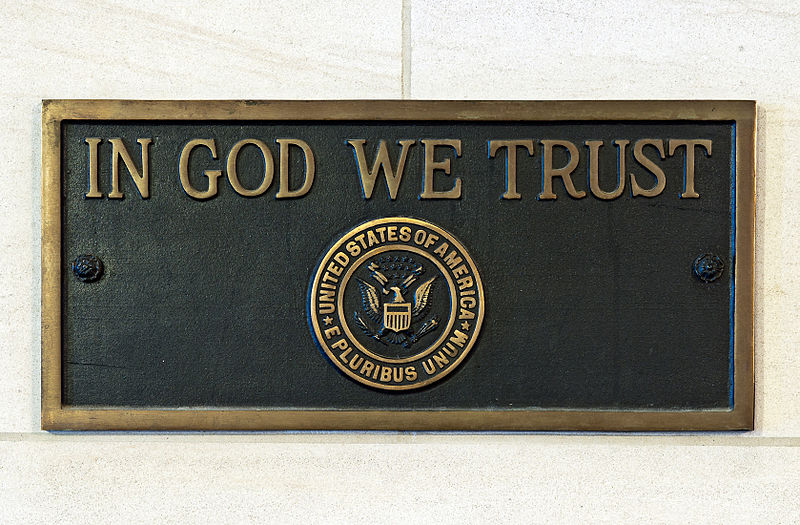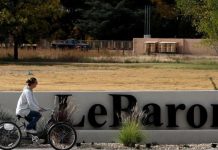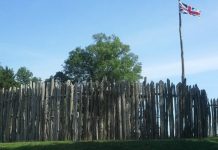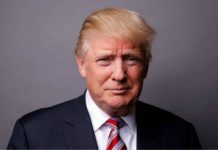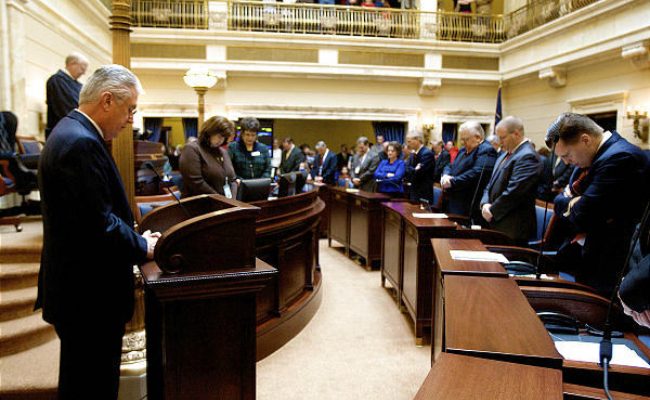
On this day in 1947, George Albert Smith gave the invocation for a session of Congress. This represented a major moment of popular acceptance for members of The Church of Jesus Christ of Latter-day Saints.
Today, however, the question of legislative prayer has changed substantially. Many question whether the tradition should even remain at all. Recently, the Supreme Court has ruled in favor of legislative prayer. The case of Town of Greece vs. Galloway has been a recent item in the news and ended with the conservative majority ruling in favor of having legislative prayer.
However, the opposition felt that legislative prayer was actually a force in repressing religious freedom, feeling that it supported only certain religions. Though their concerns are warranted, the United States of America was founded on Christian religion. Prayer is a crucial element of this religion and removing it would be equivalent to taking God out of our lives: a form of religious oppression.
About the Case
Legislative Prayer is where legislative bodies (such as a city council) open their meetings with a prayer. In the town of Greece, New York, legislative prayer led to the case of Town of Greece vs. Galloway. CNN reports that the opposition, Atheist Linda Stephens and Jewess Susan Galloway, tried to sue because they felt legislative prayer supported only one religion.
However, the conservative side won the case with a 5-4 ruling. Richard Wolf of USA Today states that “the majority ruled that opening local government meetings with sectarian prayers doesn’t violate the Establishment Clause as long as no religion is advanced or disparaged, and residents aren’t coerced.”
This case goes back to issues concerning the separation of church and state. Though the country was founded by religious peoples, there are many today who don’t want the country to support any religion at all, fearing that it will lead to bias and suppression.
Yet the culture of our government is rife with references to religion: from the pledge of allegiance to the dollar bill. Everywhere there are constant reminders of what our founding fathers believed: that there is a God out there and that he is the one who truly leads us.
The Ceremony of Sectarian Prayer
Another focus with the case dealt with the ideals in the first amendment. Part of this amendment states that “[c]ongress shall make no law respecting an establishment of religion, or prohibiting the free exercise thereof.”
This ideal is a crucial part of the case, because legislative prayer can be seen as an act of religious liberty or an act of religious oppression. One complaint was that many legislative prayers made reference to Jesus Christ, who is not believed to be deity by Jews, Muslims, Buddhists, etc.
However, we must ask ourselves whether removing legislative prayer might be as much an act of oppression to those who support it, as having legislative prayer is to those who don’t.
However, many of the judges who supported legislative prayer viewed it as merely a tradition instead of an act of religious oppression.
Justice Anthony M. Kennedy told the Washington Post that “[c]eremonial prayer is but a recognition that, since this Nation was founded and until the present day, many Americans deem that their own existence must be understood by precepts far beyond the authority of government.” So though the Supreme Court did not want to endorse a specific religion, they did endorse the ceremony of legislative prayer so long as it was sectarian and given voluntarily.
Why Prayer is Important
Richard Wolf reports that the conservative judges felt removing legislative prayer would have resulted in “having government officials and courts ‘act as supervisors and censors of religious speech,’ or declaring all such prayers unconstitutional.”
This would have gone against the ideals of the first amendment and resulted in the religious oppression feared by those who opposed legislative prayer.
As members of The Church of Jesus Christ of Latter Day Saints know, prayer is a crucial part of not only our religion but our lives.
Prayer is our means to communicate to God for comfort, guidance, and to express gratitude. We do not just pray often, but always:
Yea, and cry unto God for all thy support; yea, let all thy doings be unto the Lord, and whithersoever thou goest let it be in the Lord; yea, let all thy thoughts be directed unto the Lord; yea, let the affections of thy heart be placed upon the Lord forever.
Counsel with the Lord in all thy doings, and he will direct thee for good; yea, when thou liest down at night lie down unto the Lord, that he may watch over you in your sleep; and when thou risest in the morning let thy heart be full of thanks unto God; and if ye do these things, ye shall be lifted up at the last day. (Alma 37: 36-37)
We pray when alone, with family, in church meetings, and in public meetings such as with legislative prayer. Elder Franklin D. Richards, in his talk “The Importance of Prayer,” says that “[p]ublic prayers are a part of our worship services and many other public gatherings. These prayers again put us in a frame of mind to be inspired, strengthened, and motivated.”
Public prayers, like those of legislative prayer, should not offend people of other faiths, but should ask for God’s support and guidance in the decisions that will be made at the meeting.
Elder Richards also says that “[p]rayer plays a vital part in our worship, our religious thinking, and our daily lives.” We must pray always, no matter the circumstances, in order to keep God as a constant part of our life. He will guide us and others if we pray.
We are blessed to have this religious freedom supported by the leaders of our country. David Cortman, senior counsel for the Alliance Defending Freedom, told the Washington Post that “[o]pening public meetings with prayer is a cherished freedom that the authors of the Constitution themselves practiced. Speech censors should have no power to silence volunteers who pray for their communities just as the Founders did.” We must celebrate this “cherished freedom” by continually praying to God.


